AUGUSTA — Organizers have three years to raise more funds and complete a lot of work if they are to keep a date they made Tuesday with Republican U.S. Sen. Susan Collins as she toured the historic but far-from-restored Colonial Theater in downtown Augusta.
Collins, whose office steered $1.5 million in congressionally directed spending to help pay for the estimated $8.5 million theater restoration project, said while touring the riverside brick-and-steel theater she’d be excited to return for its grand reopening, which theater leader Richard Parkhurst hopes will be in 2026, the 100th anniversary of its 1926 opening.
“Congratulations to all of you for having the vision to save this masterpiece,” Collins said. “It’s going to be such a wonderful asset, not only to Augusta, not only to Kennebec County, but to the state of Maine. It’s wonderful. It’s got great bones. It’s well thought out. I’m so excited that we were able to get the funding, and I love that it’s going toward the stage. I have to admit, I know you need to do things like roofs and plumbing, but, the stage, that’s really exciting. And thank goodness it didn’t get torn down. What a loss it would have been. A piece of history gone forever.”
Leaders of the current group working to restore the vacant theater know that a 2026 opening will be a challenge, despite recent progress including a new roof, floor, structural improvements and Water Street facade. More than a decade ago city councilors came close to ordering the building to be demolished with concerns that it could collapse. The current group working to return the theater to use has been working for roughly the last 10 years.
“It’s a big dream, but we’ve got to get it done,” Parkhurst, president of Colonial Theater, told Collins. “And you’re helping. My goal is to try to have a grand opening (in 2026). It’s all about the money now.”
Collins lived in Augusta for several years while working for former Gov. John McKernan’s administration, but said she’d never noticed the Colonial Theater, which closed in 1969. Tuesday she marveled at its deceptively large interior, ornate balcony and stout construction.
“It’s huge — from the street you wouldn’t guess it’s so huge,” Collins said. “It’s truly stunning. Truly amazing.”
Andrew Silsby, a member of the theater’s board, said the federal money that came via Collins’ office will go toward extending the theater’s now-shallow stage and adding backstage space, to be able to host live theater, musical acts and other performers. Because the theater’s main use over the years was showing movies, the current stage is small, with little backstage space.
Collins is vice chairperson of the Senate Appropriations Committee.
The theater lobby, where Collins was interviewed by several media outlets following the tour, is lined with a mix of movie posters from films shown there, such as “House of Frankenstein” and “The Little Giant,” starring Edward G. Robinson. Also in the lobby are sketches and plans for renovations and a partial wall featuring fresh versions of the original interior colors of the theater.
Kathi Wall, executive director of the theater, said in June they plan to host a silent movie festival there.
Parkhurst said the theater, which once had 1,400 seats, will seat 1,000 once restoration is complete, joking that people have grown since the theater was first built.
Plans for the theater project include building a modern annex building attached to it, which would house bathrooms accessible by people with disabilities; two elevators; a smaller 200-seat theater which could also host conferences, workshops or ballroom-type events; and, on the top floor, a restaurant space that Parkhurst said would be leased out and provide an additional source of income for the theater.
The theater was placed on the National Register of Historic Places in 2014.
Send questions/comments to the editors.


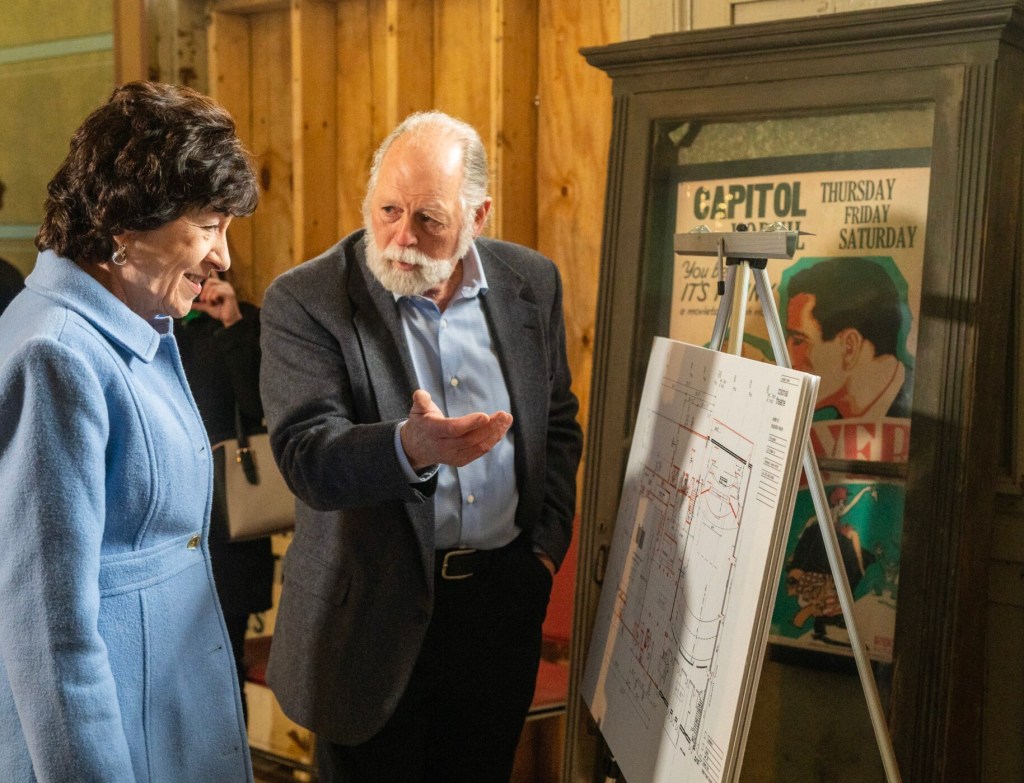
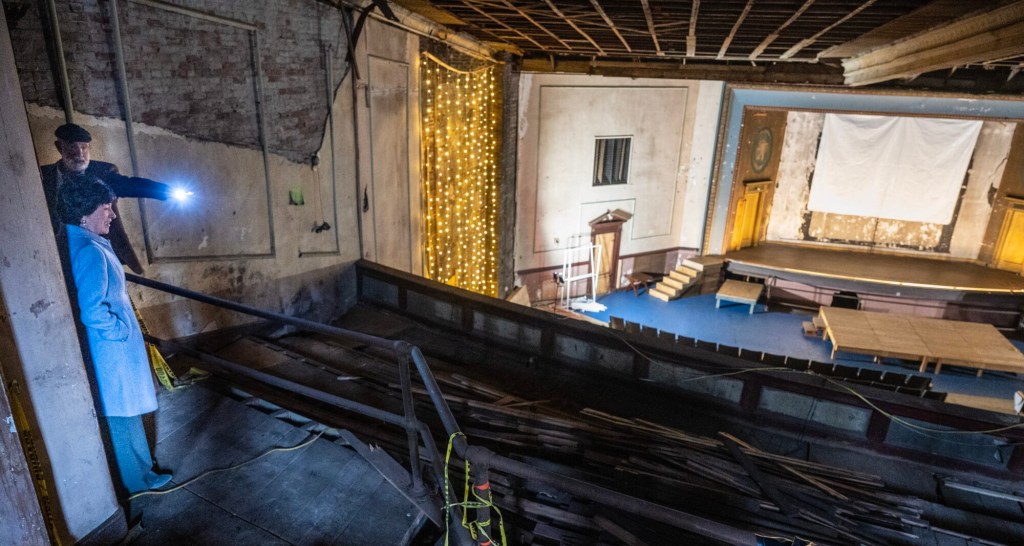
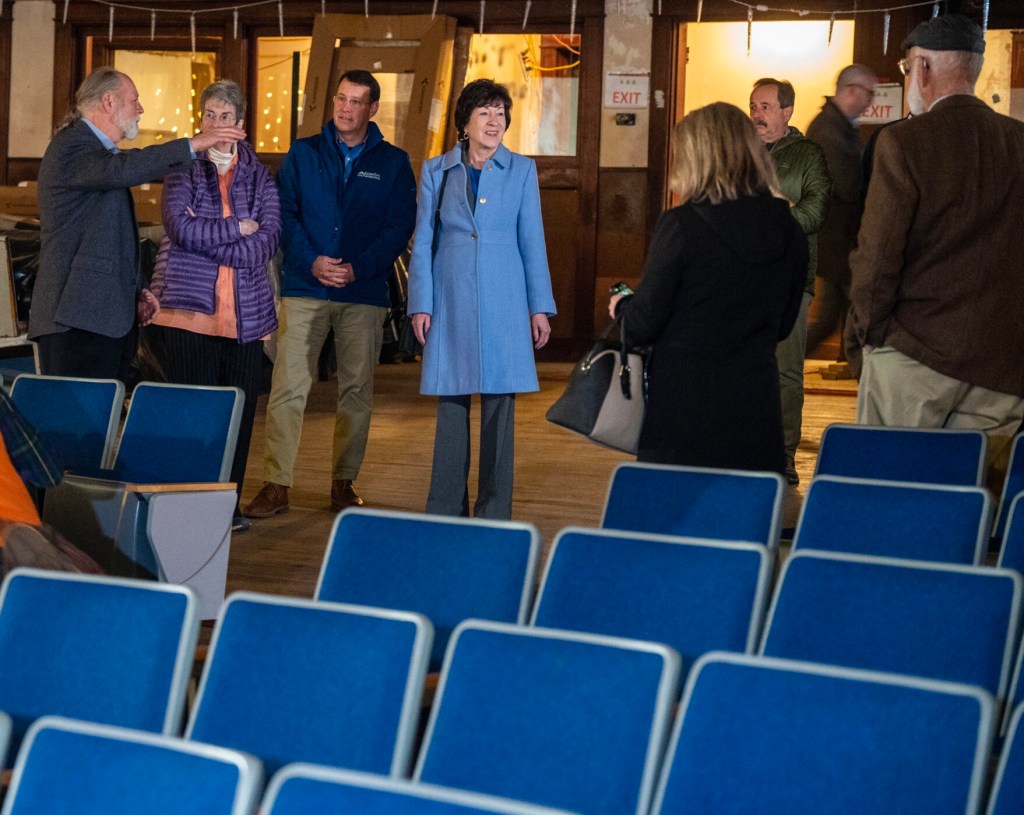
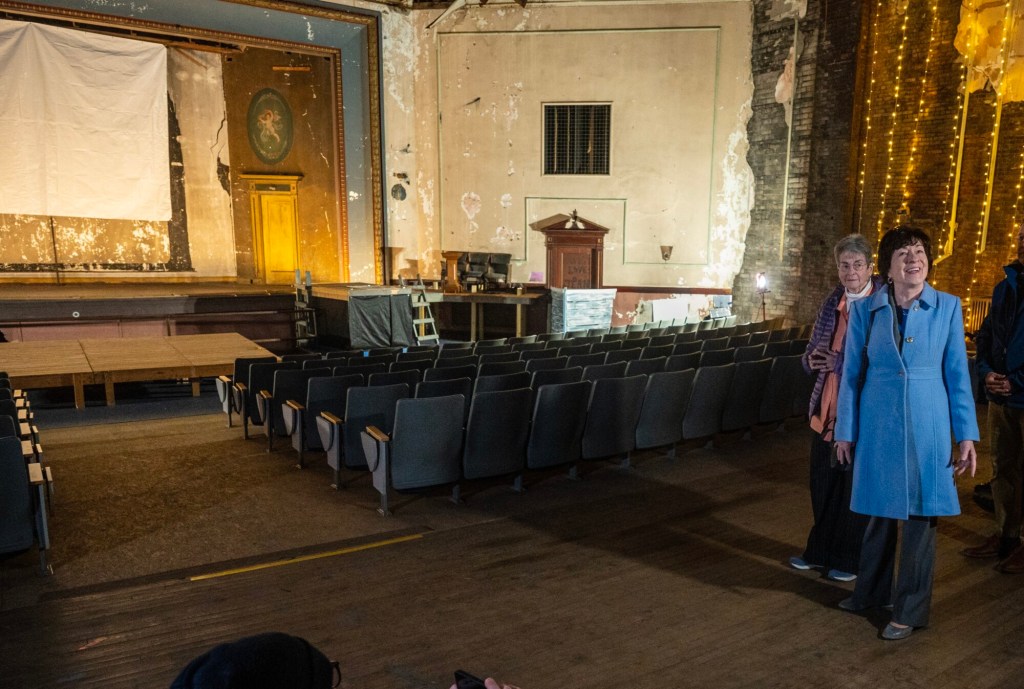
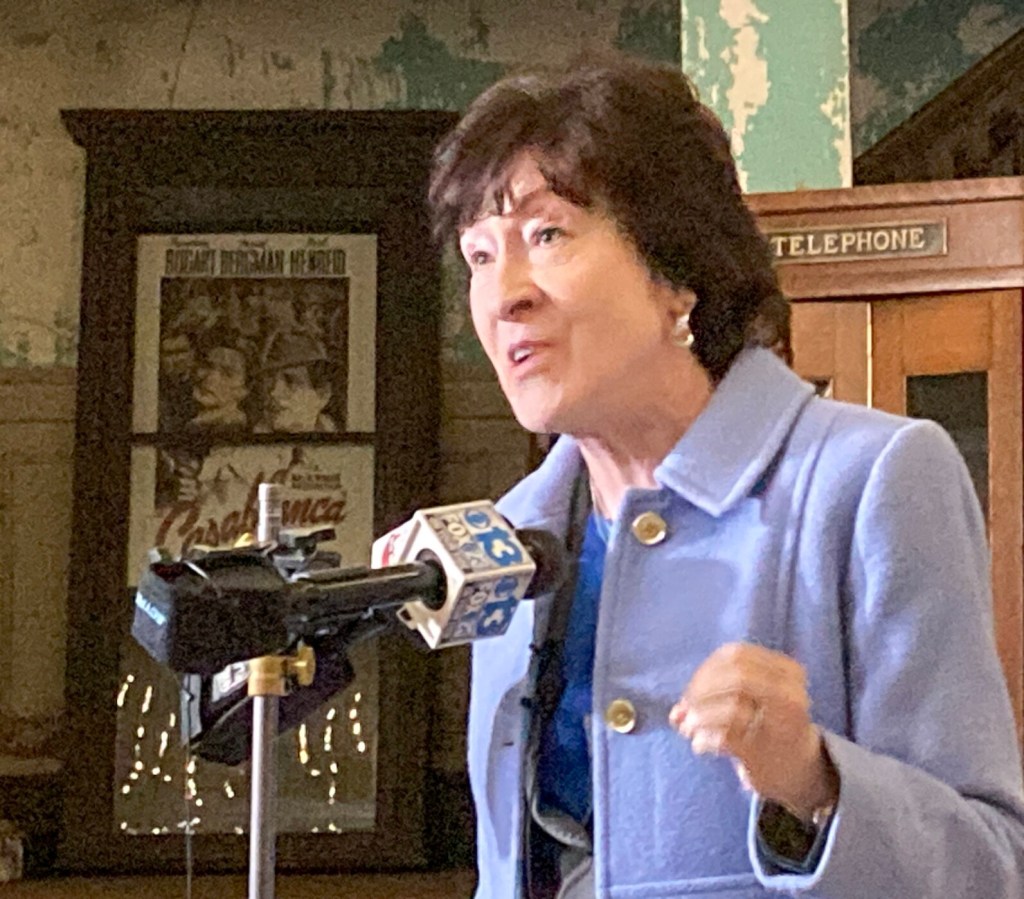

Comments are no longer available on this story